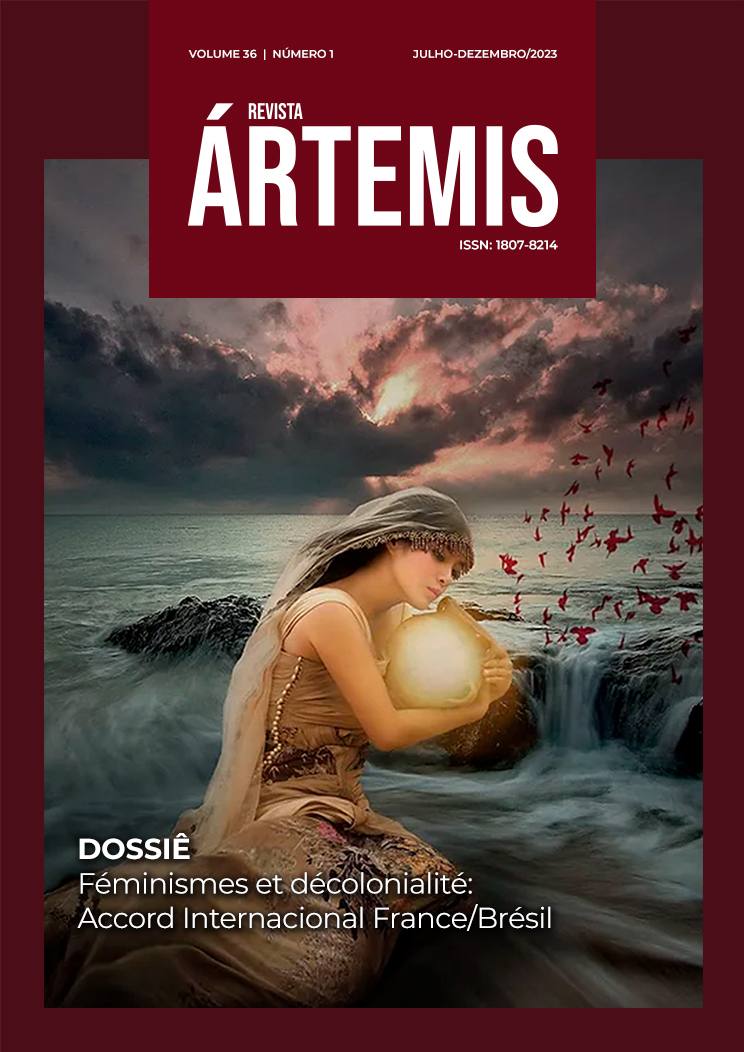The imaginary intersectionality in the lesbian writing of Yolanda Arroyo Pizarro
DOI:
https://doi.org/10.22478/ufpb.1807-8214.2023v36n1.68948Keywords:
Yolanda Arroyo Pizarro, Interseccionalidad, Escritura lésbica, Afrofeminismo, Literatura afrolatinoamericanaAbstract
The narrative genre has allowed writer Yolanda Arroyo Pizarro to recreate worlds and build alternate realities to reiterate her firm ideological and political commitment to social struggles. These concerns are expressed in the writing of her texts, and demonstrate activism strategies to address social discussions and political questions within broad cultural contexts. Among her novels, a leadership voice emerges to speak and interpret aspects from her own identity in spaces where her multiple subjectivities travel. The analysis of this process through which her writing becomes aware of individual and group experiences of oppression lends itself to critical analysis based on “the intersectional imagination”, proposed by Antonio Pastrana, when exploring the narratives of leaders of the LGBTTQ community, and how the individual and the group merge an identity enunciation to support political claims of their collective. From this perspective we could better decipher how the imaginary dimension of Arroyo Pizarro's writing, on the one hand, seeks to raise awareness of the need for systemic change in favor of oppressed communities and, on the other hand, articulates her creative consciousness as a writer aware of intersectionalities between gender, sexuality and race. This work examines novels Caparazones and Violeta to trace the main thematic currents of her activism and her writing.







